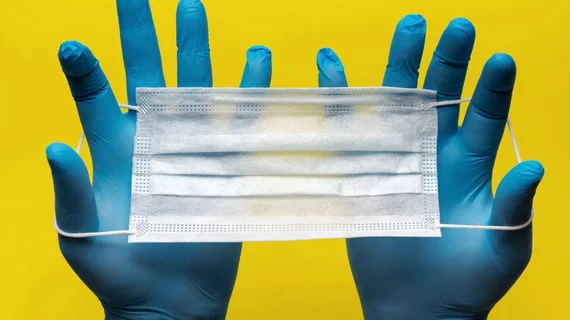‘Masks work’: Rigid policy minimizes COVID-19 cases among healthcare workers
As COVID-19 cases continue to soar across the United States, the debate surrounding mandatory mask policies is as heated as ever. Do they truly work? Or, as some critics argue, is it truly much ado about nothing?
According to new findings published in JAMA, such policies appear to work quite well; the study’s authors found that enforcing strict masking policies is directly associated with lower COVID-19 rates among healthcare workers.
The researchers tracked infection rates at Boston’s Mass General Brigham health system, which announced a plan to require all 78,000 employees to wear a surgical mask in March 2020. Rates among healthcare workers from a preintervention period were compared with a transition period and an intervention period.
Overall, the rate of positive cases increased from 0% to 21% during the preintervention period before gradually dropping down to 11%. The number of confirmed cases among all Massachusetts residents, however, continued to increase throughout the entire timeframe.
“These results support universal masking as part of a multipronged, infection-reduction strategy in health care settings,” corresponding author Deepak L. Bhatt, MD, MPH, executive director of interventional cardiovascular programs at Mass General Brigham, said in a statement. “While we studied health care workers, the results also apply to other situations in which social distancing is not possible. For those who have been waiting for data before adopting the practice, this paper makes it clear: Masks work.”
“This is the most direct COVID-19 research data to this point that is based on testing of health care workers pre- and post-implementation of universal masking policies,” added Dean Hashimoto, MD, the chief medical officer for occupational health services at Mass General Brigham. “When our infection control leaders announced a universal masking policy early in the pandemic it was a bold move, especially at a time when, like all health systems, we were facing PPE shortages. But the results of this study demonstrate that requiring masks for all hospital staff regardless of role in the organization was critical to protecting our employees.”
The full study can be read here.

